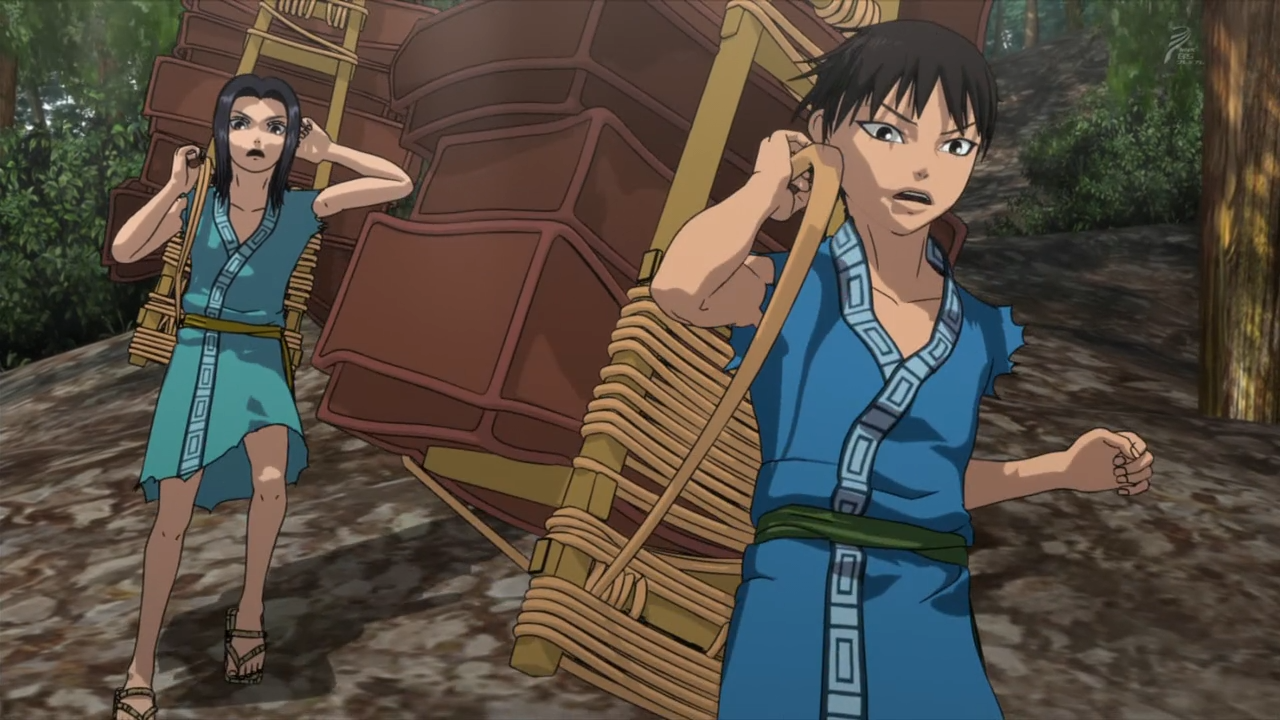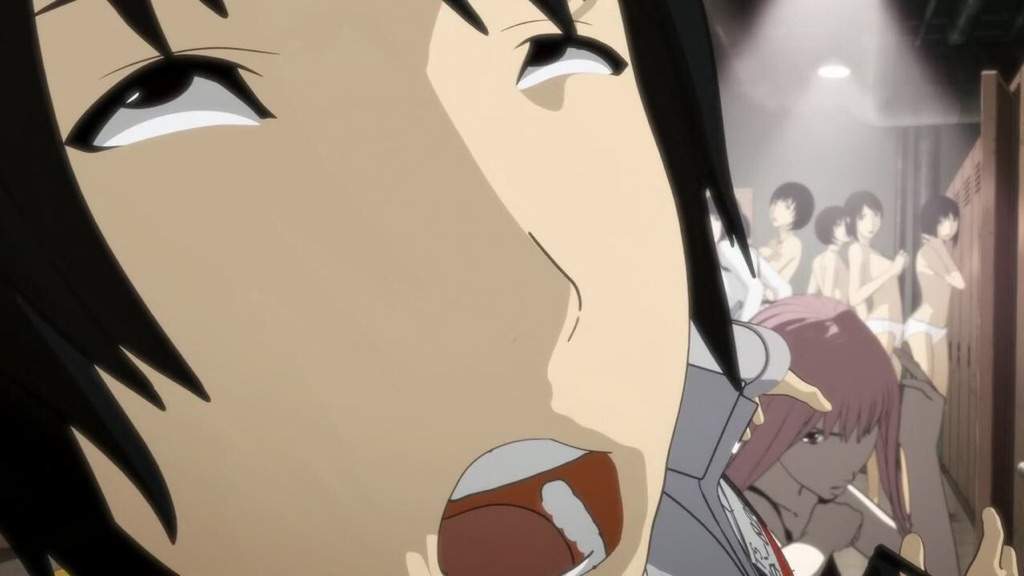Холиварофорум
Вы не вошли.
Объявление
#1 2019-01-29 16:36:59
- Анон
Магистр дьявольского культа/MoDaoZuShi и другие новеллы Мосян Тунсю
Внимание! Мирная тема.
В теме запрещено сраться, разжигать, провоцировать и поддерживать срачи, для всего этого есть Магистросрачей тред. Нарушение определяется модератором на глаз и может караться предупреждением, баном или отлучением от раздела на любой срок.
Фест по заявкам Moxiang Tongxiu Fest 2022
Твиттер со всеми ссылками
Страница Феста на АО3
Таблица заявок и FAQ
Где почитать на русском
Магистр дьявольского культа/Основатель тёмного пути: YNT 1., 2., YNT (с изобр.); альтерн. перевод вк, гуглдок; первая редакция
Благословение небожителей: YNT 1., 2. (с изобр.); альтерн. перевод: Wattpad (до конца)
Система «Спаси-Себя-Сам» для главного злодея: Блогхаус (обновляется), Wattpad
*с Wattpad.com можно качать расширением WebToEpub
Отпочковавшиеся спецтреды:
#926 2019-02-19 05:22:15
- Анон
Re: Магистр дьявольского культа/MoDaoZuShi и другие новеллы Мосян Тунсю
тумблеровский шкафообразный кудрявый мужыг
По описанию подумал, что на тумбе рисуют ЛБ Джигурдой, но всё не так плохо, он даже не негр 
#927 2019-02-19 08:12:05
- Анон
Re: Магистр дьявольского культа/MoDaoZuShi и другие новеллы Мосян Тунсю
рисуют ЛБ Джигурдой
А вот и дримкаст для возможной дорамы 
#928 2019-02-19 11:04:52
- Анон
Re: Магистр дьявольского культа/MoDaoZuShi и другие новеллы Мосян Тунсю
#929 2019-02-19 11:06:57
- Анон

Re: Магистр дьявольского культа/MoDaoZuShi и другие новеллы Мосян Тунсю
Я уже поплакал над тизером.
#930 2019-02-19 11:17:17
- Анон
Re: Магистр дьявольского культа/MoDaoZuShi и другие новеллы Мосян Тунсю
Ебануться  Ну и трындец
Ну и трындец
#931 2019-02-19 11:19:10
- Анон
Re: Магистр дьявольского культа/MoDaoZuShi и другие новеллы Мосян Тунсю
...а потом и Небожителей поди в 3D запилят 
#932 2019-02-19 11:23:15
- Анон

Re: Магистр дьявольского культа/MoDaoZuShi и другие новеллы Мосян Тунсю
...а потом и Небожителей поди в 3D запилят
Бля, сплюнь, я этого не вынесу. 

#933 2019-02-19 11:28:25
- Анон
Re: Магистр дьявольского культа/MoDaoZuShi и другие новеллы Мосян Тунсю
...а потом и Небожителей поди в 3D запилят
Бля, лучше вообще без экранизации 
#934 2019-02-19 13:05:54
- Анон
Re: Магистр дьявольского культа/MoDaoZuShi и другие новеллы Мосян Тунсю
Зато не кудрявый 
#935 2019-02-19 13:12:50
- Анон
Re: Магистр дьявольского культа/MoDaoZuShi и другие новеллы Мосян Тунсю
Ебануться Ну и трындец
Нормально, бывает и хуже  Это хоть просто 3д, без выебонов с рендером под 2д
Это хоть просто 3д, без выебонов с рендером под 2д
#936 2019-02-19 13:23:39
- Анон

Re: Магистр дьявольского культа/MoDaoZuShi и другие новеллы Мосян Тунсю
То, что есть ещё хуже не значит, что тут охуенчик.
#937 2019-02-19 13:25:24
- Анон
Re: Магистр дьявольского культа/MoDaoZuShi и другие новеллы Мосян Тунсю
То, что есть ещё хуже не значит, что тут охуенчик.
Не охуенчик, а средне, у меня глаза не вытекают, по крайней мере.
#938 2019-02-19 13:32:04
- Анон
Re: Магистр дьявольского культа/MoDaoZuShi и другие новеллы Мосян Тунсю
Пиздееец...
#939 2019-02-19 13:35:47
#940 2019-02-19 13:38:16
- Анон
Re: Магистр дьявольского культа/MoDaoZuShi и другие новеллы Мосян Тунсю
Ну, хорошо быть тобой.
Я просто видел некоторое дерьмо и мои глаза уже натренированы 
#941 2019-02-19 13:39:59
- Анон
Re: Магистр дьявольского культа/MoDaoZuShi и другие новеллы Мосян Тунсю
#942 2019-02-19 13:40:59
- Анон
Re: Магистр дьявольского культа/MoDaoZuShi и другие новеллы Мосян Тунсю
Не ты один
Ну для справедливости надо было сравнивать мелкого с мелким, а не со взрослым 
#943 2019-02-19 13:43:52
- Анон
Re: Магистр дьявольского культа/MoDaoZuShi и другие новеллы Мосян Тунсю
Ну для справедливости надо было сравнивать мелкого с мелким, а не со взрослым
Учииииитель!
#944 2019-02-19 13:53:30
- Анон
Re: Магистр дьявольского культа/MoDaoZuShi и другие новеллы Мосян Тунсю
#945 2019-02-19 14:05:26
- Анон
Re: Магистр дьявольского культа/MoDaoZuShi и другие новеллы Мосян Тунсю
Мне Ло Бинхэ показался еще норм, а вот дизай (в особенности лицо) Шэня... (((
Но вроде бы еще и маньхуа обещали, может там будет норм сюжет и рисовка.
#946 2019-02-19 14:20:52
- Анон
Re: Магистр дьявольского культа/MoDaoZuShi и другие новеллы Мосян Тунсю
Мне Ло Бинхэ показался еще норм, а вот дизай (в особенности лицо) Шэня... (((
Знающие юзеры объясняют
3D тоже сложно делать, особенно если прорисовывать каждую детальку, каждое движение ткани и прочее. Это в анимации можно схалтурить.
Из-за этого работа будет выглядеть более серьёзной, потому что лица у них такие.. мало передают эмоций.
"Система" и "серьезно" синонимы на век 
#947 2019-02-19 14:21:24
- Анон
Re: Магистр дьявольского культа/MoDaoZuShi и другие новеллы Мосян Тунсю
Я просто видел некоторое дерьмо и мои глаза уже натренированы

#948 2019-02-19 15:56:00
- Анон
Re: Магистр дьявольского культа/MoDaoZuShi и другие новеллы Мосян Тунсю
ну лучше такое симпатичное относительно 3д, чем 2д как в стратегии императора, например 
#949 2019-02-19 16:05:54
- Анон
Re: Магистр дьявольского культа/MoDaoZuShi и другие новеллы Мосян Тунсю
Ахахах, эти деревянненькие модели с 1 выражением лица на всех 
#950 2019-02-19 16:07:51
- Анон
Re: Магистр дьявольского культа/MoDaoZuShi и другие новеллы Мосян Тунсю
чем 2д как в стратегии императора, например
бывший работник студии, кстати, делился инсайдом, почему вышло так всрато. https://www.bilibili.com/read/cv1855473
вот перевод на английский







